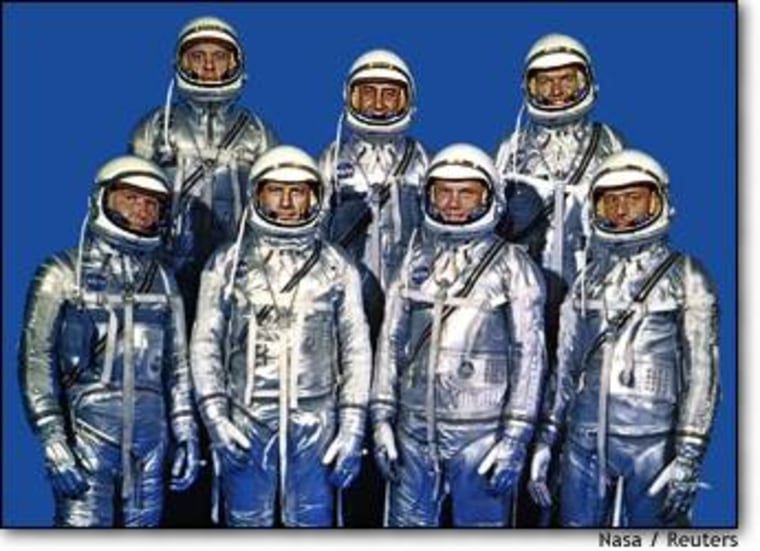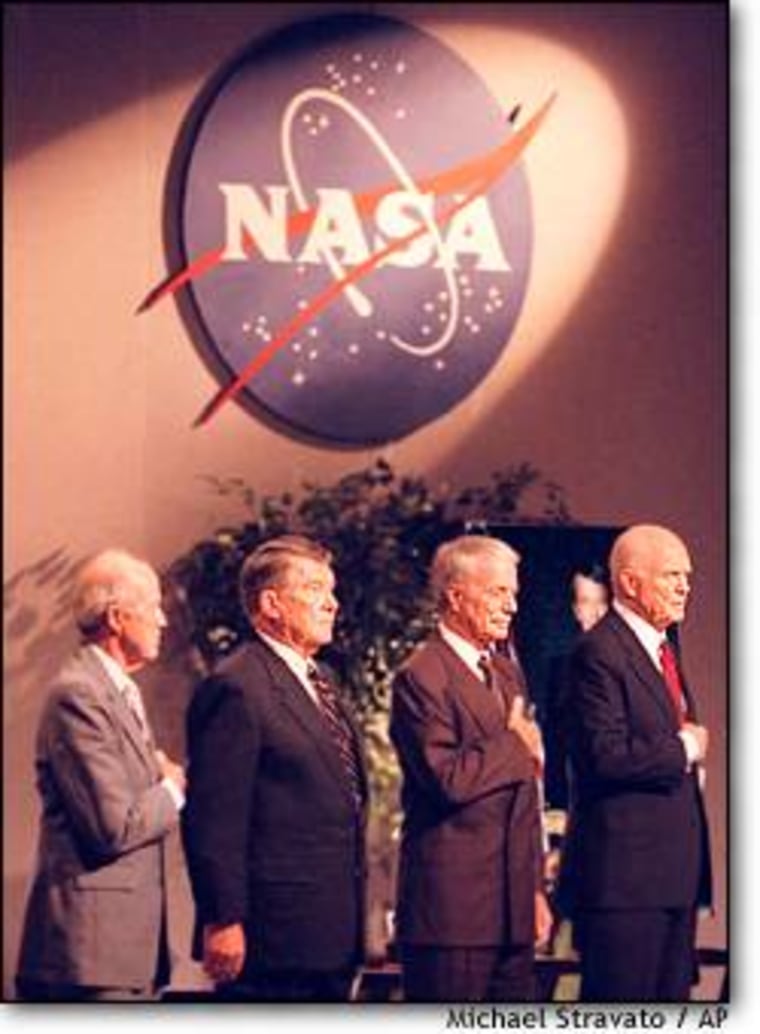Scott Carpenter was the astronaut who wished John Glenn “Godspeed” just before his historic flight on Feb. 20, 1962. Three months later, he followed Glenn into space as the second American to orbit the earth. Here are Carpenter’s reflections on those days:
THINKING ABOUT John Glenn’s spaceflight has brought back many fond memories. When he last flew in early 1962 — almost 37 years ago — manned spaceflight was an entirely different ballgame. Not only were there many more unknowns regarding whether a man would be able to do this strange thing never done before, but there were doubts about the machine’s ability to stay the course.
We trained the men the very best we knew how to do, and we tested the machines the very best we knew how to do. When we had fixed all the problems we had found with the booster and with the capsule on unmanned flights, and when we could find no hard evidence that a man could not stand the rigors of launch and entry accelerations, and when animal flights told us that a man was likely to be able to stand the stresses, whatever they were, of prolonged weightlessness — we launched John Glenn.
Sure enough, the machines and the man were up to the task. And so began the era of manned orbital spaceflight in this country.
Many unknowns became knowns. Spacecraft design was refined. Booster systems were polished, spacecraft systems were improved, and each spaceship that flew was a little better than the one that had preceded it. Each man who flew had the benefit of what the men who had gone before had learned, and we were in the space race in earnest.
What many people don’t now know, or have forgotten, is that it was a serious Cold War competition we had entered into with the Soviet Union. We were convinced that our very existence as a free nation was threatened by the Soviet lead in rocket technology. Not only had they violated our private and prized airspace with Sputnik, but they had accomplished all these things in the realm of space flight that we simply did not know how to do. Our technical leadership had evaporated, and we were to endure a long series of Soviet firsts in the space flight record book before we would recover.
Those were trying times for this nation, but the fact of the matter is that the competition between the two nations kept us both doing better work. I have long felt that our constructive competition with the Soviets in space flight kept the world out of a destructive competition in war.

Two crucial figures emerged in this country in our battle for pre-eminence in space: John F. Kennedy, with his charisma and vision, galvanized the nation behind the idea that we should fly to the moon; and Wernher von Braun, with his blinding genius, showed us how to get there.
Projects Mercury and Gemini and Apollo and Skylab and Apollo-Soyuz and the shuttle and the Russian Mir have all made vital contributions to our knowledge of where we are, who we are, where we have been and where we are going. This month’s flight of the crew of Discovery will add to the fund of knowledge that will eventually show us the way to send men to and eventually colonize Mars.
All these flights will one day lead to manned exploration of other worlds outside our own solar system. That will not be soon. But it is inevitable.
